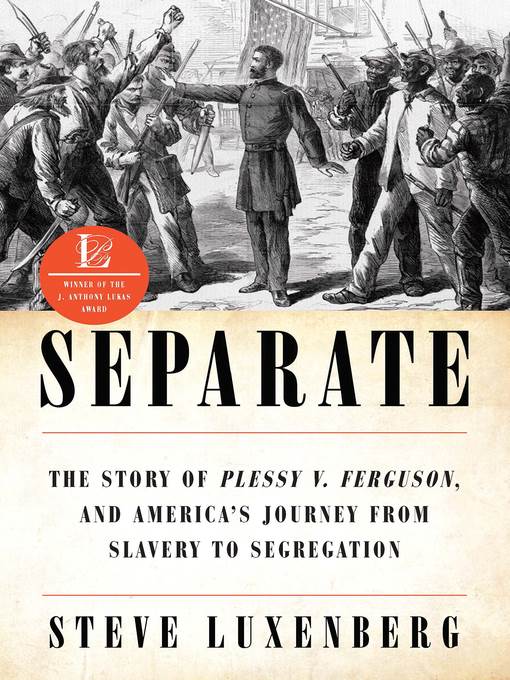
Separate
The Story of Plessy v. Ferguson, and America's Journey from Slavery to Segregation
کتاب های مرتبط
- اطلاعات
- نقد و بررسی
- دیدگاه کاربران
نقد و بررسی

December 1, 2018
A triple biography illuminates the birth of the Jim Crow era.On June 7, 1892, Homer Plessy was arrested for refusing to leave a whites-only railway car in New Orleans. Plessy could and often did pass for white; his arrest had been arranged to create a perfect Supreme Court test case of Louisiana's segregationist Separate Car Act. The result was catastrophe. Plessy v. Ferguson (1896) held in sweeping terms that "separate but equal" services were acceptable under the federal Constitution, cementing segregation in public and private facilities across the South for another 60 years. The appeal was directed by Albion Tourgée, a famous New York lawyer and civil rights crusader. The court's opinion was written by Henry Billings Brown of Michigan; the sole dissenter was John Marshall Harlan of Kentucky. Longtime Washington Post senior editor Luxenberg (Annie's Ghosts: A Journey into a Family Secret, 2009) investigates the multiplicity of American racial attitudes in the latter half of the 19th century through biographies of these three men, and he carries it off in style. Throughout this period, Americans in all regions grappled with questions involving relations between the races, including distinctions between social and political equality and the difficulties of determining a person's race. The author's subjects well encapsulate his theme. Tourgée was a northern firebrand who lived for years in Reconstruction-era North Carolina, facing down the Ku Klux Klan. Harlan's views evolved from his slave-state origins to a vision of limited racial equality. Brown remained subject to the pervasive casual racism that informed the nation's progress from slavery to apartheid in the service of the comfort of the white majority. Luxenberg brilliantly tackles a difficult task, presenting his solidly researched work clearly and with a restrained objectivity. The racial conflicts and conundrums emerge organically from the colorful stories of each of the principals, with the tragic ending always in view.An engaging and sensitive exploration of America's detour from the promise of equal protection.
COPYRIGHT(2018) Kirkus Reviews, ALL RIGHTS RESERVED.

Plessy v. Ferguson (1896) established the notion of "separate but equal" as law, until that decision was overturned in 1954 by Brown v. Board of Education. Luxenberg (senior editor, Washington Post; Annie's Ghost) presents a masterly narrative of the case and its roots, dating back to 1838, relating a complex story told through the lives of Supreme Court Justices John Marshall Harlan (1833-1911) and Henry Billings Brown (1836-1913); Albion Tourgee (18387-1905), author, lawyer, and civil rights firebrand; and the 11,000 free people of color of New Orleans. The author adroitly incorporates accounts of these three men, their wives, and many lesser-known residents with the unfolding racial turmoil brought about by the Civil War and Reconstruction. This engrossing work builds to the courtroom drama in which Tourgee argues passionately but unsuccessfully on behalf of Homer Plessy to a Supreme Court, including, Brown, who wrote the majority opinion, and Harlan, the onetime slave owner, whose only dissenting vote revealed separate but equal hypocrisy. VERDICT In the sweeping style of Isabel Wilkerson's The Warmth of Other Suns, this work will be enthusiastically received by informed readers and historians and is likely to become the seminal work on this crucial Supreme Court decision.--Karl Helicher, formerly with Upper Merion Twp. Lib., King of Prussia, PA
Copyright 1 Library Journal, LLC Used with permission.
























دیدگاه کاربران